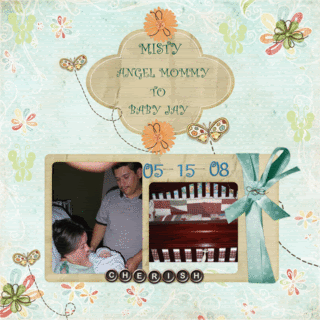insomnia
anger (not from grief either, just anger that comes out of no where. Well I guess it could be from grief.)
terrible mood swings and other things.
When Jacen was first born I thought well maybe its from just giving birth and having a baby at home and all of the "first" mommy experiences compounded with grief. But its been 14 months later and I still see no relief.
I also thought depression because of everything we have been though and that could still very well be the case, but on a typical day I feel "fine" but when it is coming close to that time of the month (TMI) is when all of this really hits me hard. I am a total mess and seems like every little thing sets me off. Here is some info I found about PMDD...
from Mary Gallenberg, M.D.
Premenstrual dysphoric disorder (PMDD) is a severe, sometimes disabling form of premenstrual syndrome (PMS). Although regular PMS and PMDD both have physical and emotional symptoms, PMDD causes extreme mood shifts that can disrupt your work and damage your relationships. About 30 percent of menstruating women have PMS. Up to 8 percent of women with PMS have symptoms that meet the diagnostic criteria for PMDD.
In both PMDD and PMS, symptoms occur in the last week of the menstrual cycle and usually improve within a few days after menstruation begins. Both PMDD and PMS may also cause bloating, breast tenderness, fatigue, and changes in sleep and eating habits. In PMDD, however, the following emotional and behavioral symptoms stand out:
- Anxiety
- Feelings of being "keyed up" or "on edge"
- Persistent irritability
- Marked anger
The cause of PMDD isn't clear. Underlying depression and anxiety are common in both PMS and PMDD, so it's possible that the normal physical changes that trigger a menstrual period somehow exacerbate mood disorders.
Treatment of PMDD is directed at preventing or minimizing symptoms and may include:
- Antidepressants. Selective serotonin reuptake inhibitors (SSRIs), such as fluoxetine (Prozac, others) and sertraline (Zoloft, others), reduce symptoms such as fatigue, food cravings and sleep problems. You can control PMDD by taking SSRIs all month or only in the interval between ovulation and the start of your period.
- Birth control pills. Taking birth control pills stops ovulation and stabilizes hormone fluctuations. Birth control pills containing drospirenone and packaged with a four-day placebo interval after 24 days of combination hormones may be more effective than are standard birth control pills.
- Nutritional supplements. Consuming 1,000 milligrams of dietary and supplemental calcium daily may reduce the physical and emotional symptoms of PMDD. Vitamin B-6, magnesium and L-tryptophan also may help.
- Herbal remedies. Clinical trials suggest that chasteberry may reduce irritability, mood swings, anger and headaches associated with PMDD.
- Diet and lifestyle changes. Regular exercise often reduces premenstrual symptoms. Cutting back caffeine intake can alleviate anxiety and irritability. Also, eating more carbohydrates in the week before your period may improve mood and memory.
It's important that you review your symptoms with your doctor. A thorough medical evaluation can determine if symptoms are due to PMDD or some other condition. If you are diagnosed with PMDD, your doctor can recommend specific treatments to help minimize the impact PMDD has on the days you experience symptoms.



































